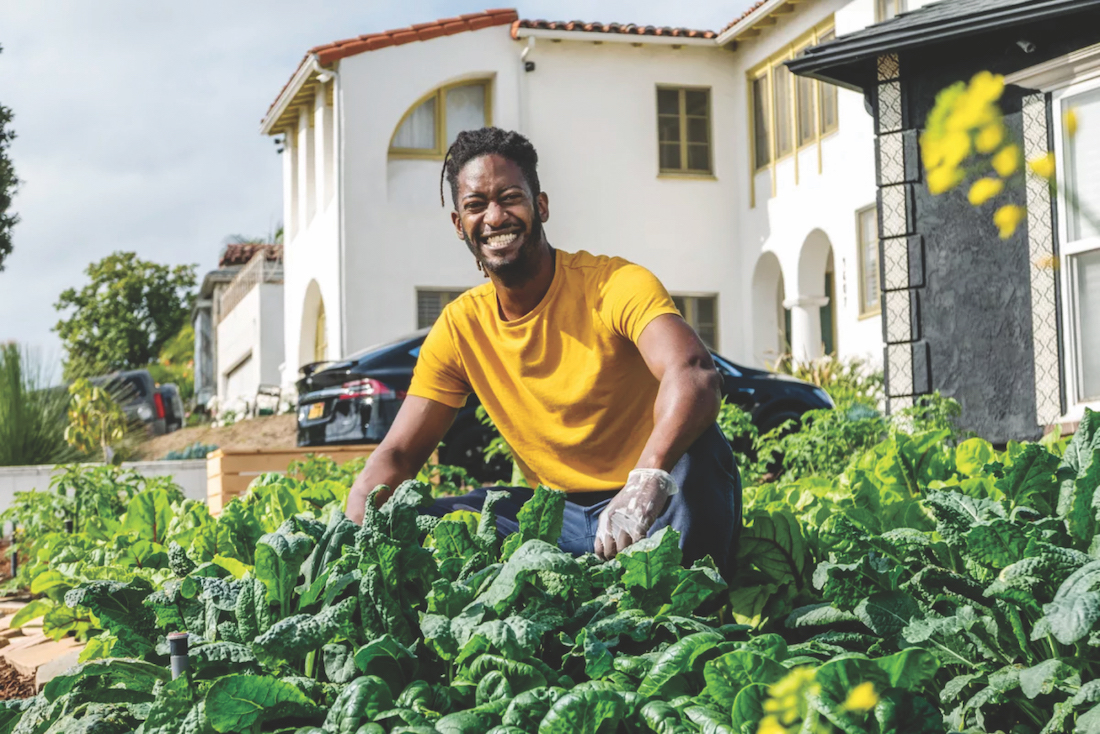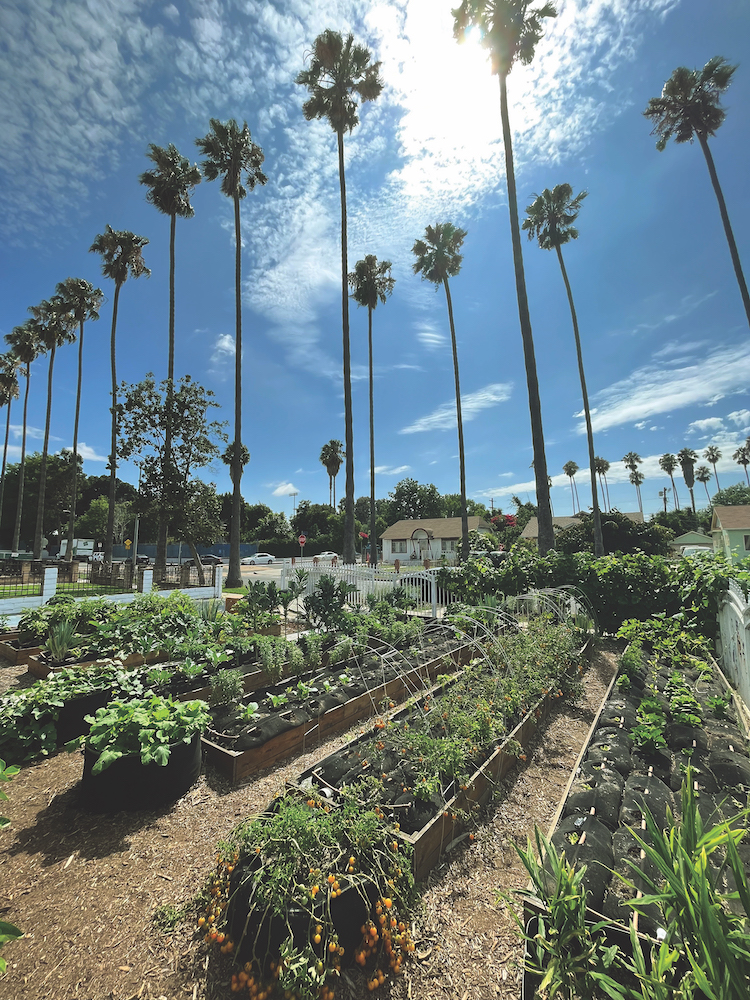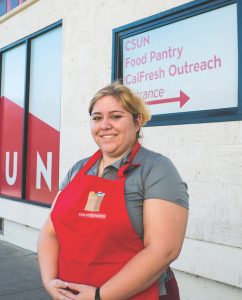Crop Swap LA Helps Urban Communities Grow Healthy Food

If you drive through South Los Angeles these days, you might come across a seemingly incongruous sight sprouting from the urban sprawl: farms. Urban farms, to be exact. Erected in the front and back yards of neighborhood homes, these “microfarms” are the handiwork of Crop Swap LA. This nonprofit organization empowers communities to grow their own food using underutilized neighborhood spaces, creating sustainable jobs and local, nutrient-rich fruits and vegetables for those most affected by food insecurity.
Crop Swap LA is the brainchild of Jamiah Hargins, who has volunteered in community gardens and farms for his entire adult life. But when his daughter, Triana, was born five years ago, he started to think more seriously about the need to feed not only his daughter “the healthiest food,” but for communities in general to be able to control their food supply for their best health outcomes. Turning his thoughts into action, Crop Swap LA was born.

Adhering to the adage, “Feed a person a fish, they eat for a day; teach them how to fish, they eat for a lifetime,” Crop Swap LA trains and hires locals to farm their own community. Using his own yard as a workshop, Hargins began to teach fellow community members the most advanced modern farming techniques. Two years later, the first microfarm, erected in a neighbor’s front yard, was ready for its maiden harvest.
Crop Swap LA’s microfarm model uses recycled rain water and upcycled materials to produce hyper-local organically grown vegetables and fruits. One microfarm typically produces enough produce to feed 20-50 families on a weekly basis. Neighbors in the community pay a small fee for a bag of fresh produce (on average half the cost of what a local high-end organic market would charge). Community members on food assistance programs pay a nominal fee.
Each microfarm also offers impactful environmental advantages including pollinator-friendly native crops, zero pesticide use, regenerative farming techniques, and significantly reduced water usage (one microfarm uses only around 10% of the water a lawn might require).
The ideal Crop Swap LA member, according to Hargins, is “the grandma across the street who lives in an apartment building, who cannot grow her own food.” Anyone in the neighborhood can volunteer their yard to be farmed, though to make sure the food stays hyperlocal, members must live within one mile of the microfarms. Once a plot of land is offered up, Crop Swap LA takes care of the rest. The program currently employs 21 trained urban farmers and administrators and pays them to farm in the middle of South Los Angeles.
The microfarms also serve as community beautification and a place for neighbors to gather, each replete with waterfalls and ponds. They not only provide available jobs, but each farm fosters a greater sense of community, neighborhood, and pride.
Although Crop Swap LA was launched primarily during the pandemic, Hargins and crew used his oft repeated mantra to endure and sprout: “Black excellence is a seed; you just need to add water.”
While Crop Swap LA is currently adding water to soil in farms all over South LA, it is also now a globally recognized institution and movement.
Crop Swap LA
Donate now!www.cropswapla.org
(213) 314-5240
Director of Policy and Development: John Garside
Mission
The Crop Swap LA™ mission is to grow food on unused spaces, creating sustainable jobs and local, nutrient-rich food in communities affected most by food insecurity.
Begin to Build a Relationship
We know you care about where your money goes and how it is used. Connect with this organization’s leadership in order to begin to build this important relationship. Your email will be sent directly to this organization’s Director of Development and/or Executive Director.
Revolutionizing the Neighborhood Garden
A $10,000 donation buys 100 meals that include 1,200 pounds of fresh fruits and vegetables delivered to Crop Swap LA community members. What it buys in resource conservation and community spirit is priceless.
Key Supporters
Almuhtada Smith
Mary MacVean
Arman Walker
Butterfly Equity Foundation
California Community Foundation
Clif Family Foundation
United States Department
of Agriculture
LA2050
Los Angeles Unified
School District
State of California
St. Mark UMC Church
United Way Greater Los Angeles
Eat the Change
Ethos Giving
